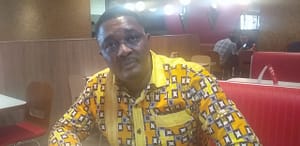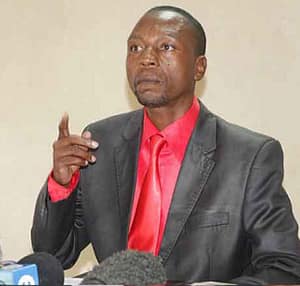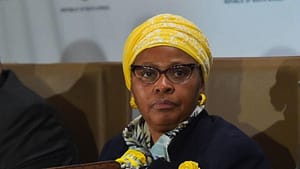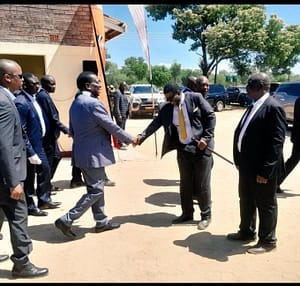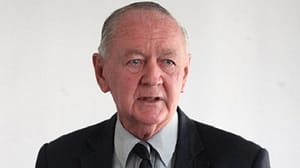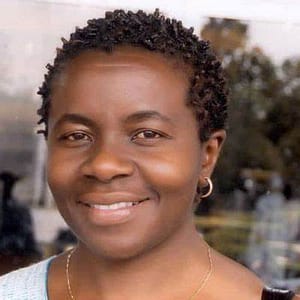DEMOCRACY, FAITH, MORALS AND POLITICS
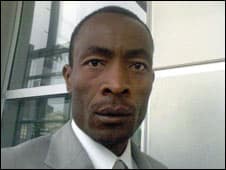
Australia based, Zimbabwe Political Writer, Reason Wafawarova
I am a Zimbabwean immigrant living in Sydney Australia for the past 17 years, and I have observed over the years the relationship between democracy, faith, morals and politics in this part of the world.
Australia is a federation of Commonwealth States, and most people in the outer world know of the Prime Ministers of the country, notable would be characters like Bob Hawke, Gough Whitlam, Robert Menzies and John Howard.
Australia has six states and two territories that make up the Federation, with New South Wales being the biggest state at a population of 7.8 million of the 25 million people in Australia. I live in Sydney, the capital of NSW, which also happens to be Australia’s commercial hub or capital.
States have their own governments led by Premiers, and recently we had a change of leadership where a hardworking popular liberal single 50 year old female leader was replaced by an equally hard working 39 year old father of six devout Catholic with distinct moral values, notable among which are his opposition to things like same sex marriage.
The appointment of Dominic Perrottet to the role of NSW Premier after the sudden resignation of Gladys Berejiklian provoked an outcry in Sydney in particular. For me it was a deeply weird reaction when some people described the 39 year old politician’s assent as “scary” and “troubling”, and even “nervous” for one of the LGBTQIA members.
One social media activist was concerned that Perrottet’s conservative religious and family values “drive attitudes and often policies that may be severely at odds with the central demands of democracy.”
I come from Africa and we have been writing and debating a lot on the so called central demands of democracy, not least among them things like gay rights and free choice.
I find the idea that holding conservative Christian and family values is aberrant very weird in itself; weird in the sense coined by evolutionary psychologist Joseph Henrich in his book on “how the West became psychologically peculiar and particularly prosperous.”
Herich tracks how the European Christianity’s marriage and family program replaced intensive kin-based institutions with an institution that expanded trust relationships beyond family. Its the same way African Christianity dismantled traditional faith and polygamous marriage institutions and other facets of African traditional life.
The universalism European Christianity fostered created what Henrich called the Western, Educated, Industrialised, Rich, and Developed (WEIRD) world.
I have not lived in an other Western country, but I can say with a degree of confidence that Australians are individually among the WEIRD. It really does not matter that faith and religion are on a sharp decline in Australia, the fact still remains Australian views have been or are shaped by the social structures built by religious ancestors. These encouraged individualism, independence, the notion that strangers have the same inherent human value as those related to us, non-conformity, resistance to tradition and a whole number of attributes and characteristics recognised as democratically positive and plausible.
These characteristics are even viewed as aspirational, and most Australians believe they possess all these attributes, and I dare say many, if not most of today’s Australians have become so non-conforming that they have talked themselves out of religion entirely, specifically out of Christianity.
These people believe one can be moral, spiritual and good without attending religious ceremonies or worshipping a higher being. I saw this posted on a Zimbabwe Community Social Media discussion group and the views I read there show that even immigrants like Zimbabweans are fast getting caught up in this non conformity drive.
Australia, like many other Western countries is open to other peoples and cultures. The country’s immigration intake has made it the diverse, multicultural and multi-faith society it is today. Since the 1950s the overseas-born population has risen from 10% of the population to the current 33%.
This has increased the proportion of of non-WEIRD to WEIRD people, as more people come from countries like China, India, the Phillipines, Malaysia, Sri Lanka, South Africa, other African countries and also from Latin America.
Most of these countries are collective and conservative, and they tend to be more religious, more family oriented and less individualistic than societies that have been WEIRD for a very long time.
Immigrants like myself bring their cultural dispositions with them, and Henrich found out that generally these values are also held by their descendants over a couple of generations.
When immigrants settle in Australia, they make up distinct communities that are more socially conservative, family oriented and religious than the ordinary inner city WEIRDo Australian.
Politically these immigrant communities now hold a significant lot of electoral power. Although immigrants are of course not the reason behind Perrottet’s values and beliefs, it cannot be denied that his values and beliefs does attract the immigrant vote.
Henrich reports that immigrants from different countries living in the same country show higher levels of trust in people of faith, even if its faith different from their own. This has also been attributed to Trump’s immigrant support in the US.
Premier Perrottet’s values make him more trustworthy among the less WEIRD new Australians.
In retail political speak, Perrottet can connect with voters from many religions because he shares their values, most of them universal across religions.
Even NSW Opposition leader is also a devout Catholic who is also as family oriented as his rival in politics. The two politicians are the preferred idea of a politician in Western Sydney where most immigrants are located, and this is where the next federal elections could be decided.
By now the WEIRD people terrified of Perrottet should be waking up to the threat of the immigrant vote, or to the shocking discovery that Australian public does not revolve around their values or the lobbying thereof anymore.
The Australian Broadcasting Corporation’s Religion and Ethics presenter Andrew West noted that part of the reason Labour lost to the Liberals in 2019 was religious freedom, adding an observation that “Labour, and the broader left, need to understand that you cannot celebrate multiculturalism without supporting religious freedom.”
In many Western countries today, a devout Christian would have to fake or conceal their religious identity to be acceptable to the WEIRDos, and I note that Zimbabwean opposition leader Nelson Chamisa has been having fiery criticism over his Bible Verse tweets. We certainly do not have WEIRDOs in Zimbabwe, but we also certainly have a lot of borrowed reasoning from that country, particularly when it comes to the effort of associating and identifying with Western values. I
But the reason why most, if not all African leaders try and avoid the topic of gay rights is the perceived cost in terms of retail politics. You do not want to lose a whole election fighting for the rights of a minority whose values you also find hard to appreciate.
While no one expects politicians to adopt a fake religious identity, people expect the politicians to believe , to manifest these beliefs in private and in public, and to educate their children according to these beliefs.
This means respecting that people may have different views on social issues, such as same sex marriage, abortion, gender and things like voluntary assisted dying.
WEIRD people see these things as about individual choice. Less WEIRD people believe that individual choices affect the collective and so they tend to be more conscious about changing the social fabric.
There are no right or wrong answers on culture, and we should be tolerant enough to disagree and debate that there are others among us who will simply not embrace values they view to be unacceptable to them, much as they may tolerate co-existence with those who uphold those values.
I realise that many WEIRDOs believe individuals choices make up the “central demands of democracy.”
This is funny when one takes the elementary Aristotelian definition of democracy as the “rule of the people, by the people, and for the people.”
It reads to me like the central demand of democracy is the collective, not the individual choice. It is the collective that will determine and regulate individual choices, not the individual choices that will determine what the collective should choose and go by.
—Reason Wafawarova is a political writer based in SYDNEY, Australia.

